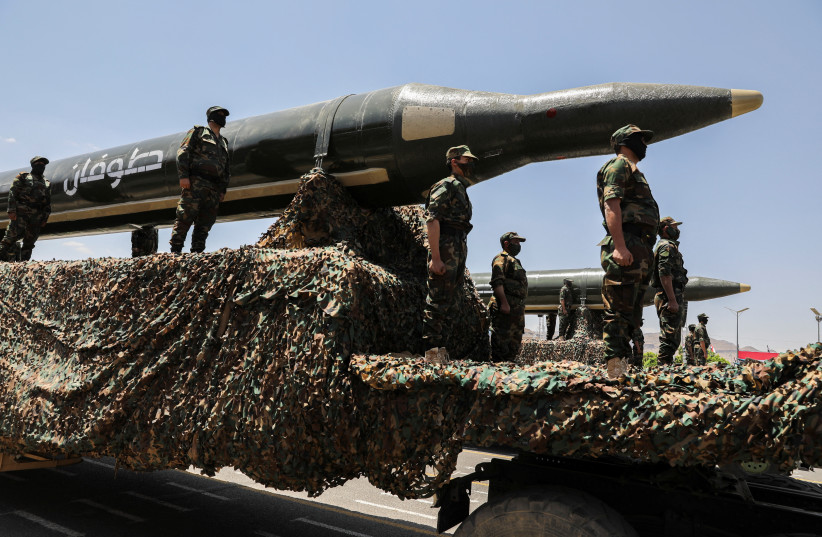Two Houthi attacks on the Maersk Hangzhou commercial ship in the Red Sea between Saturday and Sunday represent a new escalation by the Iranian-backed Houthis. It also represents a forceful new approach by the US to stop small boats from trying to interdict the ship.
It is important to note that the Danish company Maersk said last week it was going to resume shipping via the Red Sea, after several companies had paused shipping via the important waterway due to Houthi attacks. The BBC reported on December 27 that “Danish shipping giant Maersk has said it is preparing to resume shipping operations through the Red Sea and Gulf of Aden. The move follows the deployment of an international military operation to prevent attacks on commercial ships by Yemen’s Houthi rebels. Several firms have paused shipments via the Red Sea following the attacks.”
US Central Command said that at 8:30 p.m. in the evening in Yemen the Houthis first attempted to attack the Maersk Hangzhou. The ship “reported that they were struck by a missile while transiting the Southern Red Sea. The Singapore-flagged, Denmark-owned/operated container ship requested assistance, and the USS Gravely (DDG 107) and USS Laboon (DDG 58) have responded to the ship. The vessel is reportedly seaworthy and there are no reported injuries.”
The Gravely is one of the numerous US ships now protecting ships in the Red Sea. It has joined the Laboon, USS Mason and others that have played a key role over the last month. “While responding, the USS Gravely shot down two anti-ship ballistic missiles fired from Houthi-controlled areas in Yemen toward the ships,” the US said. Central Command also specified that “this is the 23rd illegal attack by the Houthis on international shipping since Nov. 19.”

The Houthis did not stop with the missile attack. They then dispatched a number of small boats to attack the ship. US Central Command was blunt in its language about the second incident, which occurred at 6:30 a.m. on December 31. “Iranian-backed Houthi small boats attack merchant vessel and US Navy helicopters in Southern Red Sea,” the US said. This is an important statement blaming the Houthis and mentioning Iran.
The Maersk Hangzhou issued a distress call saying it was being attacked by four small boats. “The small boats, originating from Houthi-controlled areas in Yemen, fired small arms weapons at the Maersk Hangzhou, getting to within 20 meters of the vessel, and attempted to board the vessel.” The US ships in the area then sent helicopters, which represents a new tactic they have used to confront the Houthis.
The statement by US Central Command says the helicopters came from the US aircraft carrier the USS Eisenhower, and the Gravely, a destroyer. “The small boats fired upon the US helicopters with crew served weapons and small arms. The US Navy helicopters returned fire in self-defense, sinking three of the four small boats, and killing the crews. The fourth boat fled the area. There was no damage to US personnel or equipment.”
The incident is unique in several ways. First of all it is interesting that Maersk had decided to resume shipping and the Houthis then targeted this specific ship. It is not clear if the Houthis chose the ship, but it does send a message that a company that sought to resume shipping, was then attacked. The US response to the attack was robust.
The sinking of the small boats is an important development. The Houthis are trying to escalate, and they are being matched with defensive capabilities of the US navy. They are not yet deterred, but the incident illustrates that they can take losses in these encounters.
